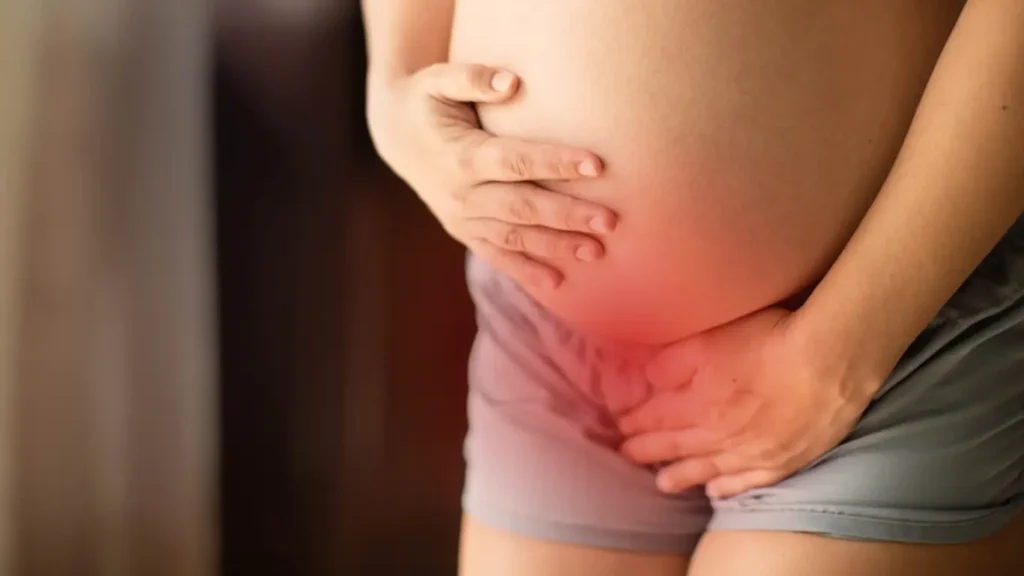Ovarian pain in the early weeks of pregnancy Ovarian pain at the beginning of pregnancy is a common symptom that can scare many future mothers. In most cases, it is a physiological and temporary condition, but sometimes it can signal complications that require medical attention. The discomfort generally manifests on one side, corresponding to the affected ovary, and is more common in the first trimester. Acute ovarian pain: what does it mean? With the term “ovarian pain,” women often refer to sharp pains or acute sensations in the lower abdomen. The causes can be:
- Physiological → implantation of the embryo, hormonal changes, stretching of the uterine ligaments.
- Pathological → ectopic pregnancy, threat of miscarriage, ovarian cysts, inflammation of the adnexa.
If the pain is persistent or associated with fever, bleeding, or dizziness, it is essential to consult a gynecologist immediately. Normal pregnancy or ectopic pregnancy? Ovarian pain in the early weeks is often related to the implantation of the fertilized egg and the growth of the uterus. These changes, influenced by progesterone, can cause temporary painful sensations that tend to resolve spontaneously. However, in some cases, the pain may result from an ectopic pregnancy. The embryo implants outside the uterus, usually in a fallopian tube, causing sharp and progressive pain, often accompanied by bleeding. This condition is a medical emergency that requires immediate intervention. Ovarian pain and the risk of miscarriage Intense abdominal cramps, associated with spotting or bleeding, can indicate a miscarriage in the early stages of pregnancy. Other possible causes include:
- Functional ovarian cysts: common and generally benign, they tend to regress spontaneously.
- Inflammation of the adnexa (ovaries and tubes): can cause persistent pain, fever, and general malaise, requiring appropriate medical therapy.
Ovarian pain in pregnancy: prognosis and recommendations In the majority of cases, ovarian pain during pregnancy is harmless and transient. However, given the possible complications, it is advisable not to underestimate it. Practical advice:
- Always contact your gynecologist in case of severe or recurring pain.
- Do not ignore signs such as fever, bleeding, or dizziness.
- Avoid self-medication with painkillers without medical advice.
Ovarian pain at the beginning of pregnancy is a common symptom and often related to the normal adaptations of the female body. However, in some situations, it can indicate more serious conditions, such as an ectopic pregnancy or a miscarriage. Carefully monitoring symptoms and consulting your doctor remains the safest choice. Note: The contents of this page are for informational purposes and do not replace professional advice. In case of symptoms, doubts, or medical needs, always consult a qualified physician.
❓ FAQ – Ovarian pain in pregnancy
- Is it normal to have ovarian pain at the beginning of pregnancy?
Yes, in the early weeks of pregnancy, it is common to feel sharp pains or discomfort in the lower abdomen. They are often due to the implantation of the embryo and hormonal changes, particularly the increase in progesterone.
- How to distinguish normal ovarian pain from an ectopic pregnancy?
Physiological pain is usually mild and transient. In ectopic pregnancy, however, the pain is sharp, unilateral, and tends to worsen. It may be accompanied by bleeding: in this case, it is necessary to consult a doctor immediately.
- Can ovarian pain be a sign of miscarriage?
Yes, especially if associated with intense cramps, spotting, or vaginal bleeding. It is important to contact the gynecologist immediately for an evaluation.
- How long does physiological ovarian pain last during pregnancy?
Generally, pain related to natural causes resolves spontaneously within a few weeks, as the uterus adapts to the new condition.
- Can ovarian cysts cause pain during pregnancy?
Yes. Functional cysts are common in the early stages of pregnancy and can cause intermittent pain. In most cases, they regress spontaneously or after childbirth.
- What to do if I have ovarian pain and bleeding during pregnancy?
In the presence of bleeding, spotting, or persistent pain, it is essential to consult a gynecologist immediately. Do not take medications without medical indication.


